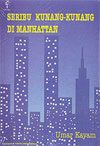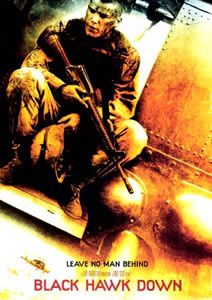sga*
 I attended his book launching because I read most of his books. There's something about his writing that tickles me. It's a subjective thing. He's one of few Indonesian writers whose stories always set in urban settings. Compared to his peers, his works are the most published in any sorts - be that novels, comics or columns.
I attended his book launching because I read most of his books. There's something about his writing that tickles me. It's a subjective thing. He's one of few Indonesian writers whose stories always set in urban settings. Compared to his peers, his works are the most published in any sorts - be that novels, comics or columns.At that time, one of his novels was translated into English by an Indonesian-Australian foundation that pays lots of attention to Indonesian literature. The book launching was pretty festive. Wine and petit fours were flowing (I don't know since when the Indonesians residing in Indonesia are accustomed to drinking wine). A blend of literature and political crowd I'd say, since this English-translated novel has a political undercurrent.
He walked up the so-called stage; under a blinding spotlight, in broken English he apologized for being unable to speak the foreign language fluently. He went on, saying that he didn't mean to write a novel while he was writing the novel. Basically, he was just protesting against the regime through his writing.
A former human rights NGO** activist walked up to his side. It's a she, now the head of ICG*** in Indonesia. She said that his novel is an apt metaphor (gee, I like these words. Sounds so erudite
As I said, I didn't attend the book launching because of the book. It was him who made me putting up with the crowd there. I wanted to see the man in real life. I wanted to hear his words. His arguments. Well, he wasn't the first so-called celebrity that I had the chance to see and listen to without any mediating medium. I was somehow aware of remarks and comments a person in such capacity would make. But because to some extent his novels are part of my personal stuff (books are personal stuff to me), I was expecting something else. A personality of a regular guy.
The way he looks, the way he moves and his gestures promised a lively evening filled with jokes and stories. The way he wrote, the stories, the sentences and the style promised interesting and fulfilling debates on several issues on the novel.
I asked the possibility of translating the novel into Tetun - local East Timorese language. A silly question, of course - but I was just bridging Sidney Jones' comments earlier, as well as pointing out that similar effort have been made.***** Without any further thinking, he said it flatly, "It's okay." I was like, "WHUD?" I was gaping at him. Jones who were still by his side, somehow taking the role of an interpreter, trying to translate and rephrase my question (I refuse to speak English despite the multinational crowd, because SGA himself has stated his inability to speak the language. I saw no point in posing a question in English). After Jones' rather lengthy explanation, finally something more sensible (to my acknowledgement) came out of his mouth. When the book was launched for the first time, despite several talk shows in radios, book launching events cum seminars and the language used in the first edition: Indonesian; no soul seemed to give a damn about it. He went on saying that not many Indonesians were able to understand the story and the book itself; it was foreign readers who actually grasped the book. "I don't think there will be an impact if it were translated into Tetun." His final flat statement.
The way he talked, the tone he used, the words he spoke clearly illustrated a flat boring figure.
He seemed unable (or actually unwilling) to argue the audience who posed several questions. Most of the words that came out were: "I don't know", "It can be", "It's okay, that's your opinion".
I met a couple of journalists (gee, each invitee -most of them cultural events journalist- received a copy of the newly translated novel, which was worth Rp. 65,000.00!) and exchanged a couple of words with them. They were laughing to hear my grumble. "Well, that's him. That's how he always behaves in any book launching events, conferences, anything. Aloof, uncaring, flat, hushed."
Well, he's better off a writer then.
aksara bookstore, jakarta.
undated.
* seno gumira ajidarma
** non-governmental organization
*** international crisis group
***** see: "Seribu Kunang-kunang di Manhattan" - Umar Khayam (Yayasan Obor Indonesia). The short story was translated in several major local languages in Indonesia in an attempt to observe the capacity of local languages in interpreting modern culture.

Labels: culture
 Finally, I made the time to watch Black Hawk Down. Initially, I expected a war movie, but it turned out to be (well, for me it is) a half docu-war movie with a humanitarian and political undercurrents.
Finally, I made the time to watch Black Hawk Down. Initially, I expected a war movie, but it turned out to be (well, for me it is) a half docu-war movie with a humanitarian and political undercurrents.










